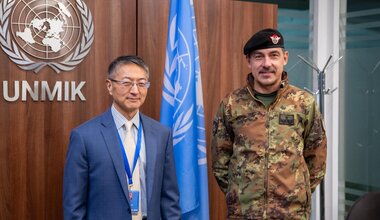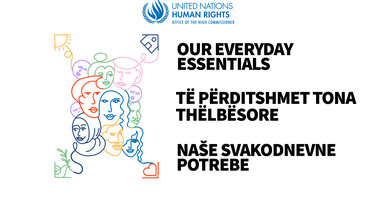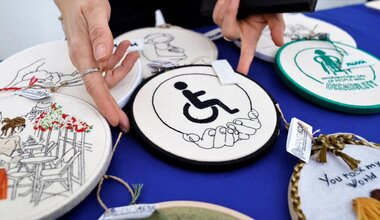24 Jun
2013
Participants of roundtable in Pristina call for improved media accountability to tackle online hate speech
Participants of roundtable in Pristina call for improved media accountability to tackle online hate speech
“Media should provide more room for public awareness campaigns against online hate speech, while media literacy should be inscribed in education curriculum,” recommended participants of a roundtable discussion organized by UNESCO in Pristina, Kosovo* on 5 June 2013 on the topic of hate speech in online media.
Nehat Islami, Executive Director of the Kosovo Press Council, started by declaring that “the increased penetration of the Internet in Kosovo* has presented a new challenge for media, which still have not found sustainable ways to address offensive comments or hate speech spread by Internet users.”
Hate speech in online media in Kosovo* is mostly generated by media users rather than by journalists themselves. Media generally do not hold themselves responsible for comments published on their online edition.
Ibrahim Berisha, Chairman of the Kosovo Press Council, explained how the Press Council has recently taken a proactive approach towards the rapid increase of news portals, and towards the publication and non-filtering of inflammatory readers’ comments.
“[The Council] has, on its own initiative, drafted and adopted Guidelines for Online Journalism, which specifically require editorial boards to monitor their news portals and filter content that incite hate or provoke criminal offences,” said Mr Berisha.
He also underlined that “the Press Council has managed to adjudicate on a few complaints against online media publishing stories containing hate speech.”
Participants pointed out that such constructive initiatives should, however, be coupled with more media and information literacy. A critical understanding of the functions of media, and their contribution to social inclusion and combating of prejudices and cultural stereotypes is essential for promoting peace and mutual respect.
The roundtable was opened by Stojan Pelko, European Union Special Representative Office Spokesperson; Nehat Islami, Executive Director of Kosovo Press Council; and Adeline Hulin, consultant from UNESCO.
The event took place in the framework of the EU-UNESCO project: “Media Accountability in South East Europe”, which started in January 2013. The roundtable is the third in a series of local events in the region.
__________________________
* which is administered by the United Nations Mission in Kosovo (UNMIK), should be understood in the context of the UN Security Council Resolution 1244 (1999).
* which is administered by the United Nations Mission in Kosovo (UNMIK), should be understood in the context of the UN Security Council Resolution 1244 (1999).
 UN
UN United Nations Peacekeeping
United Nations Peacekeeping






